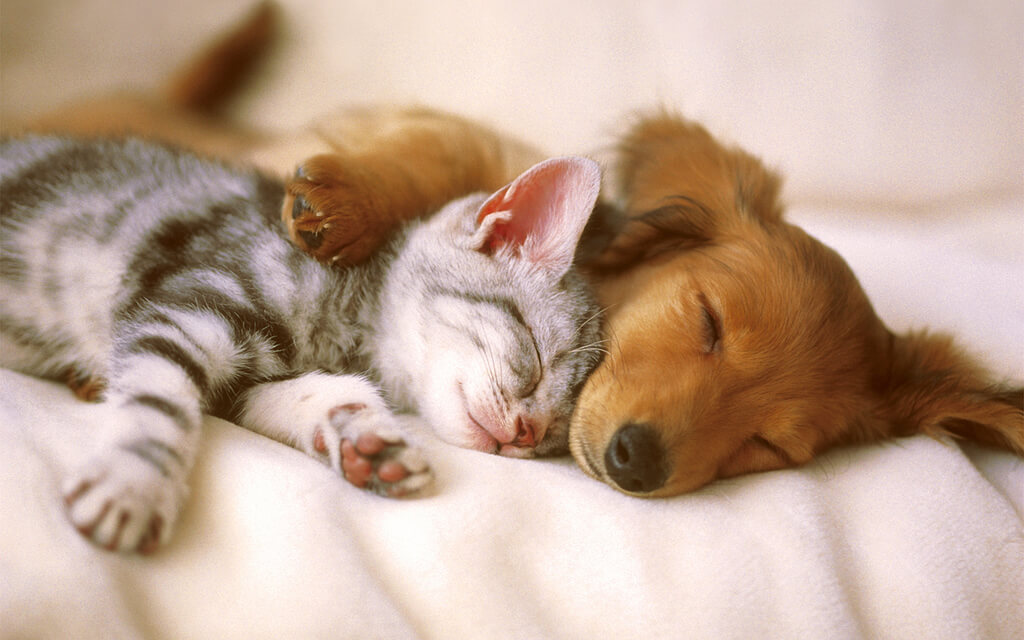-
Does any of the following sound familiar?
- Your pet destroys clothing, furniture or its bedding while you are away.
- Your housetrained pet urinates or defaecates inside.
- Your neighbour complains of barking while you are away.
- Your pet tries to escape through excessive digging or scratching.
- Your pet clings to you panting or whining by your side when you return.
Anxiety or stress can be extremely debilitating and render a pet susceptible to emotional and health problems. Separation anxiety is one of the more common forms of anxiety, and occurs when a pet is separated from their owner.
During this time of stress, a frenzied pet may try anything to get you back. Typical signs of separation anxiety include barking, panting, chewing, inappropriate toileting, escaping, digging or scratching.
While the causes of separation anxiety are not fully understood, it is apparent that genetics and environmental factors play a role. A change in ownership, being left alone longer than usual, a relocation to a new house or the loss of a household member are common causes.
“Training your pet to sit calmly and rewarding them for relaxed behaviour is essential to managing separation anxiety.”
How to help a pet with separation anxiety
There is a range of effective management techniques that can help pets reach a relaxed state. These range from exercise, training to behaviour-modifying methods.
Here are a few things you can try:
- Play music or keep the television on when left alone.
- Provide chew toys or food contraptions to help distract them when alone.
- Exercise your pet first thing in the morning and straight after work.
- Hire a professional pet walker.
- Restrict the area your pet has to roam as this can help them to feel more secure.
- Leave an item of clothing on its bed as a comforter.
- Use scents such as Lavender oil or Dog Appeasing Pheromone as a calming agent.
Avoid making a fuss when you leave or return home, only giving attention when they are in a calm state. Do not reward behaviours such as jumping up, pawing or whining. Training your pet to sit calmly and rewarding them for relaxed behaviour is essential to managing separation anxiety.
Your veterinarian may also prescribe behavioural-modifying medications as you navigate through these management techniques.
Does your pet have separation anxiety?


Looking for Pet Insurance?
They bring out your best. Help protect them with Medibank Pet Insurance.
Three updated cover levels now available!ꭥ Plus, health members save 10% on premiums.# T&Cs apply.
Things you should know
Medibank Pet Insurance policies entered into for the first time prior to 30 August 2023 and subsequent renewals of those policies are issued by The Hollard Insurance Company Pty Ltd ABN 78 090 584 473, AFSL 241436, arranged and administered by PetSure (Australia) Pty Ltd ABN 95 075 949 923, AFSL 420183 (PetSure) and promoted and distributed by PetSure’s Authorised Representative (AR) Medibank Private Limited ABN 47 080 890 259, AR 286089 (Medibank).
Medibank Pet Insurance policies entered into for the first time on or after 30 August 2023, and subsequent renewals of those policies are issued by PetSure and promoted and distributed by PetSure’s AR, Medibank.
Any advice provided is general only and does not take into account your individual objectives, financial situation or needs. Please consider the Product Disclosure Statement (PDS) ensure this product meets your needs before purchasing, or choosing to continue with the product. PDS and Target Market Determination available at medibank.com.au/pet-insurance.
-
How to prevent and treat dental injuries
Specialist dentist Associate Professor William Ha shares some tips on how to keep your teeth safe during sports by wearing a mouthguard.
-
The many benefits of volunteering
When you volunteer, the good doesn't stop there. Research has found that those who give their time for something are usually happier and healthier than those who don’t.
-
Eat for your eyes
Some of our favourite foods to help keep your eyes healthy.
-
How is ‘phubbing’ hurting your relationships?
Here’s how to stop phubbing and be more mindful of your phone habits, to help improve face to face interactions with your family and friends.
-
Are the winter blues real?
Simple ways to boost your mood in winter.
-
Mental fitness explained
Just as you work to strengthen your body, your mental health deserves attention and exercise too.






